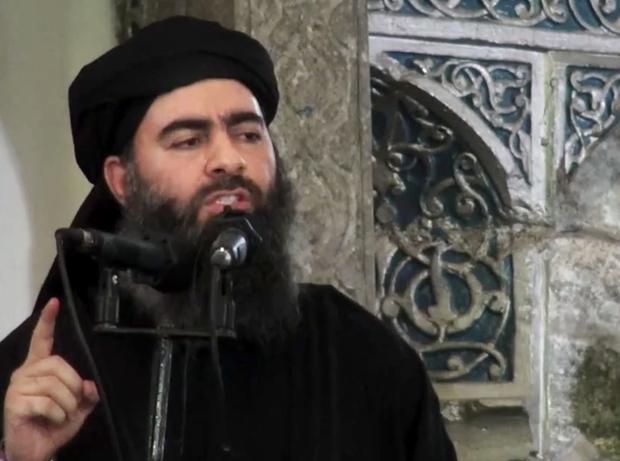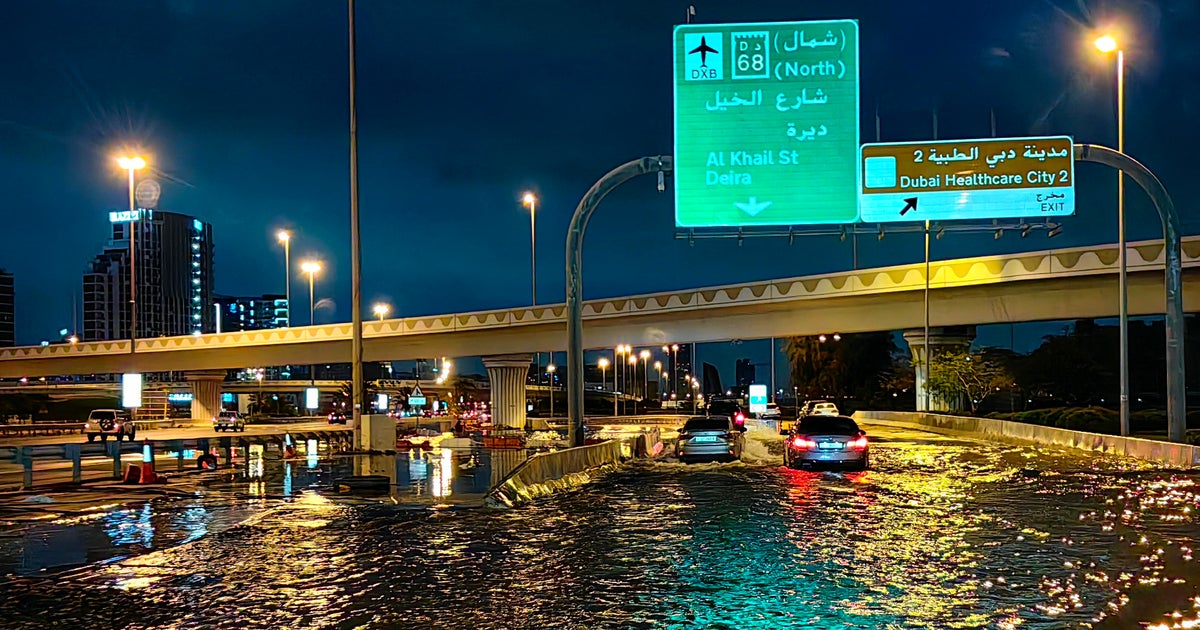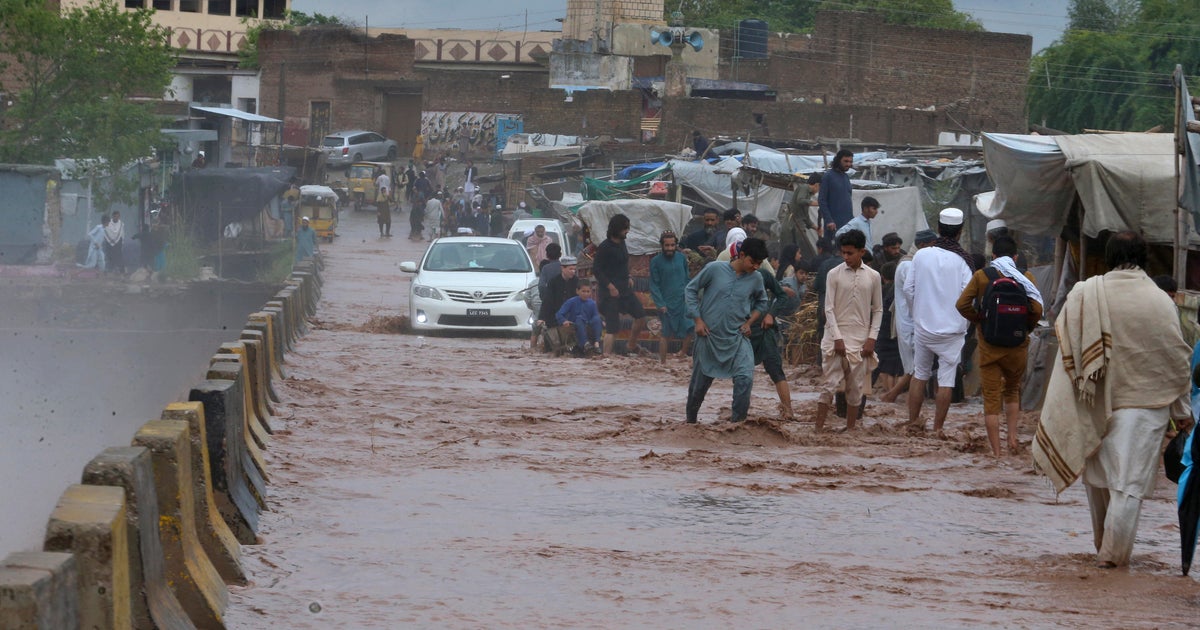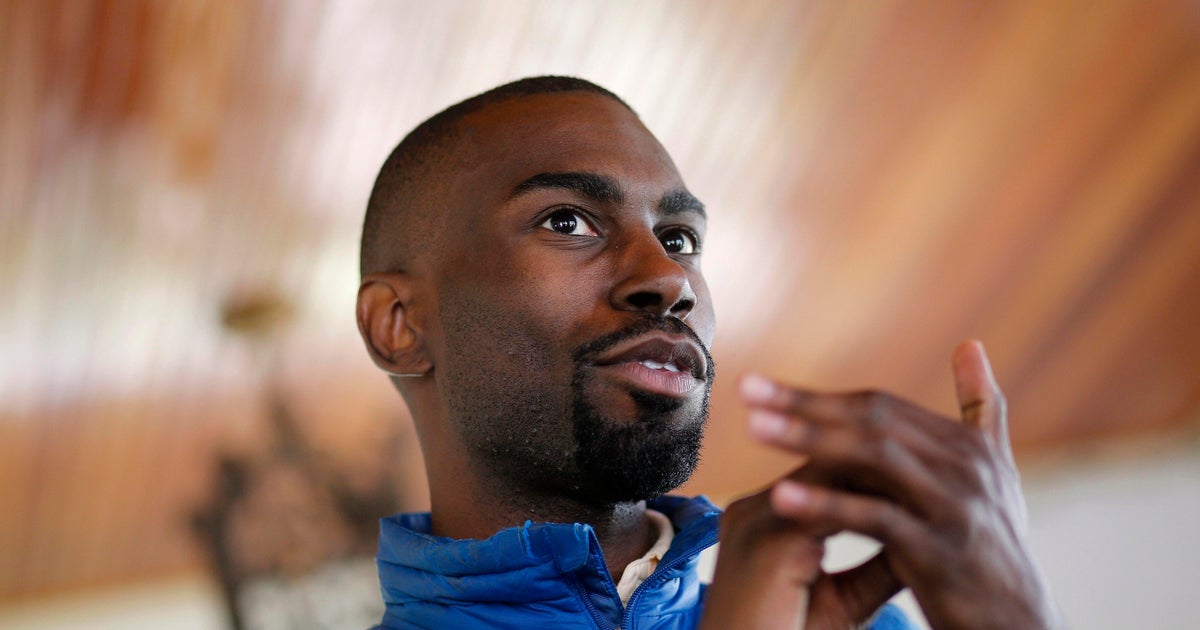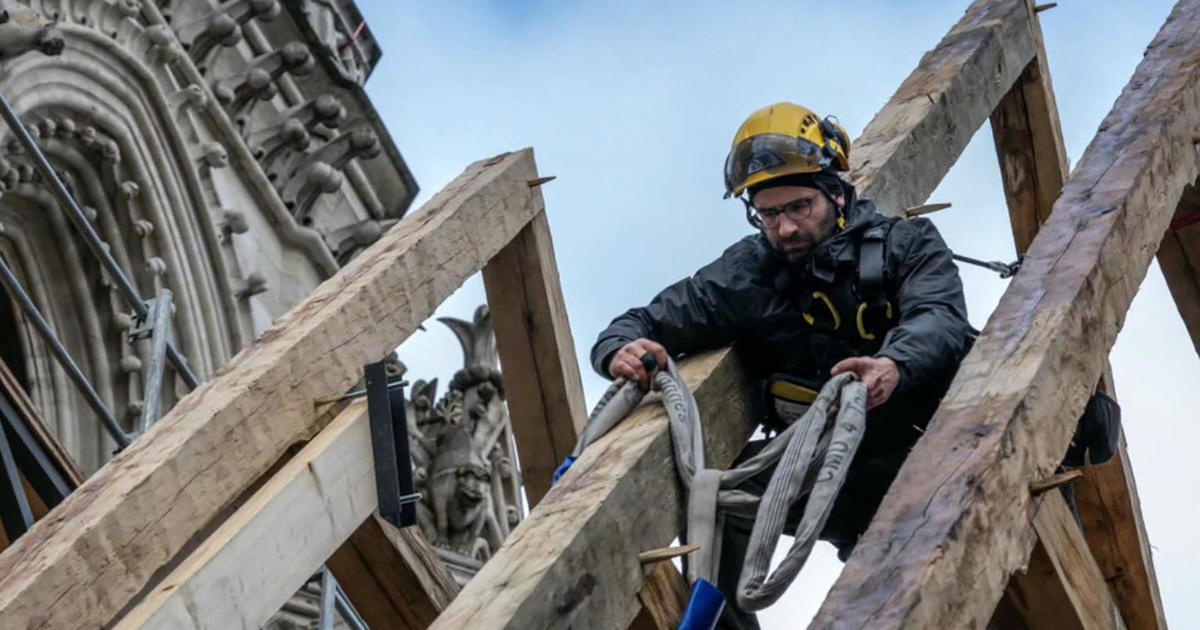ISIS loses all territory but its shadowy leader is still at large
The Islamic State of Iraq and Syria (ISIS) has lost all the territory it once controlled in Iraq and Syria, but its shadowy leader and self-proclaimed "caliph" is still at large.
With a $25 million U.S. bounty on his head, Abu Bakr al-Baghdadi is the world's most wanted man, responsible for steering his chillingly violent organization into mass slaughter of opponents and directing and inspiring terror attacks across continents and in the heart of Europe.
Despite numerous claims about his death in the past few years, al-Baghdadi's whereabouts remain a mystery. He appeared in public only once, in 2014. Since then, many of his top aides have been killed, mostly in U.S.-led coalition airstrikes.
He is among the few senior ISIS commanders still at large after two years of steady battlefield losses that saw the self-styled "caliphate" shrink from an area the size of Britain to a tiny speck in the Euphrates River valley.
Although largely seen as a symbolic figurehead of the global terror network -- he was described as "irrelevant for a long time" by a coalition spokesman in 2017 -- al-Baghdadi's capture would be a coveted prize for the various players across both Syria and Iraq.
But so far, he has eluded the Americans, Russians, Syrians, Iraqis and Kurds.
In the last days of ISIS, as U.S.-backed Syrian Democratic Forces zoned in on the last slice of territory held by the militants in eastern Syria -- a couple of villages and farmlands near the Iraqi border -- the possibility remained that al-Baghdadi would turn up there. Several hundred ISIS leaders and hardcore fighters, many of them Iraqis, made a last stand in the enclave before surrendering.
The last pocket, in the eastern village of Baghouz, was declared liberated on Saturday after weeks of fighting. During the siege, civilians streamed out of the pocket and surrendered -- estimated at more than 30,000, mostly family of ISIS. But there has been no sign of al-Baghdadi.
"The Coalition is not holding him nor do we know where he is," U.S.-led coalition spokesman Col. Sean Ryan told The Associated Press.
Mohammed Kheder, co-founder of the Sound and Picture group which documents ISIS, said the last time al-Baghdadi was spotted in the area was about 15 months ago, citing sources on the ground and the testimony of the people who left the area.
In Twitter posts, Kheder's group has said it cannot rule out the possibility al-Baghdadi was detained long ago -- "especially since many of American airdrops and night operations targeting ISIS leaders along the Iraqi border have not been disclosed by the coalition."
Iraqi intelligence officials believe al-Baghdadi is hiding somewhere in the desert stretching across the Syrian-Iraqi border, using tunnels to move around.
"He does not use any communication equipment or internet to avoid detection by coalition planes," a senior intelligence official said. "When he wants to see someone from the organization, they are brought to him individually in cars that stop around two hours away from where al-Baghdadi is, and then they are brought to him individually on motorcycles."
Another official, a colonel, said the Americans recently targeted some of al-Baghdadi's closest people, including his personal bodyguard Khaled al-Saudi -- known as Khallad -- who was killed last week near the area of al-Baaj along the Iraqi-Syrian border.
Khallad's wife was arrested. Another close aide to al-Baghdadi was also recently killed and his wife captured, the colonel said, adding that the Americans believe such targets will soon lead them to al-Baghdadi. Both officials spoke on condition of anonymity to share intelligence information.
Al-Baghdadi's only known public appearance on video was on June 29, 2014, when he appeared as a black-robed figure to deliver a sermon from the pulpit of Mosul's Great Mosque of al-Nuri in which he urged Muslims around the world to swear allegiance to the caliphate and obey him as its leader.
